

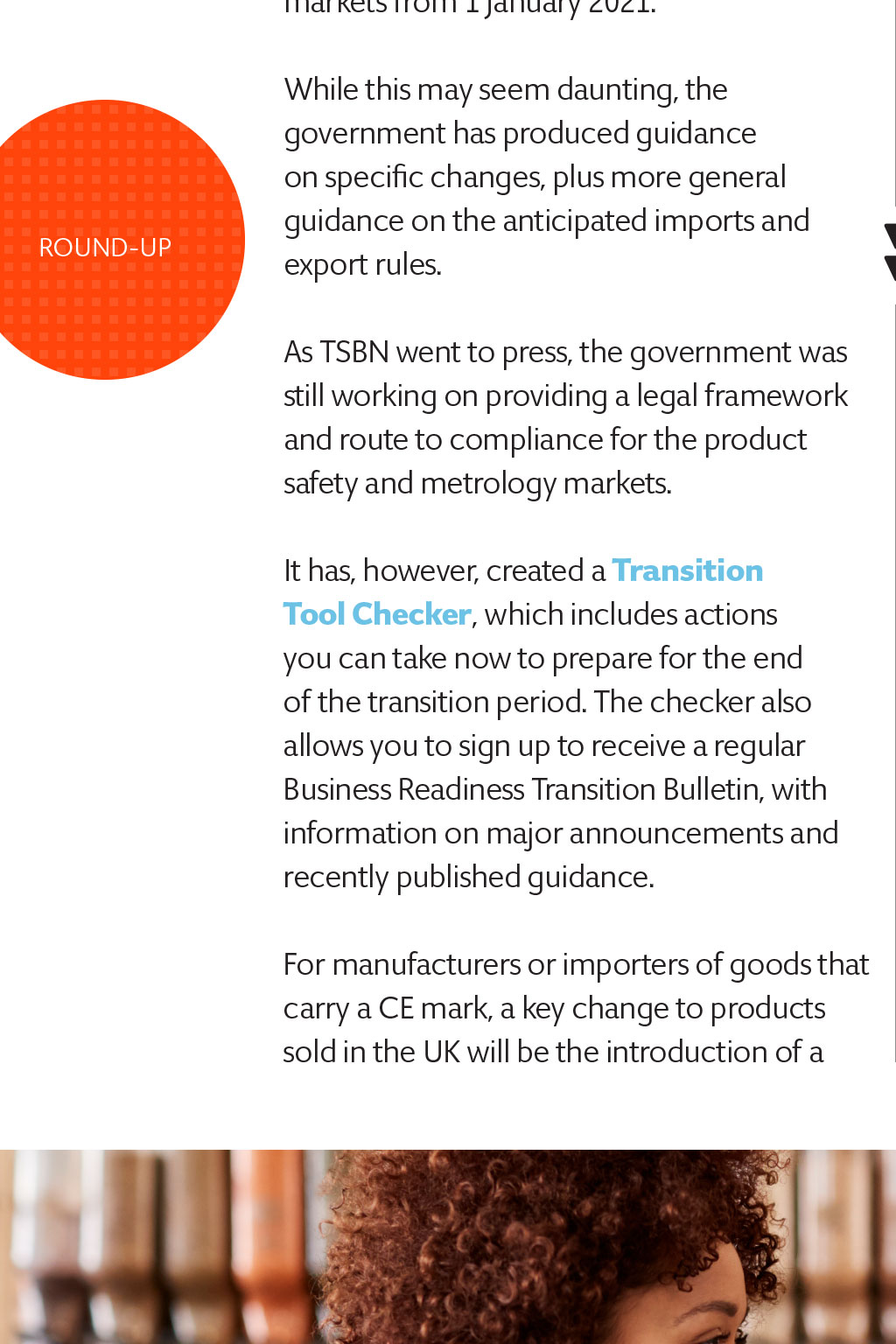
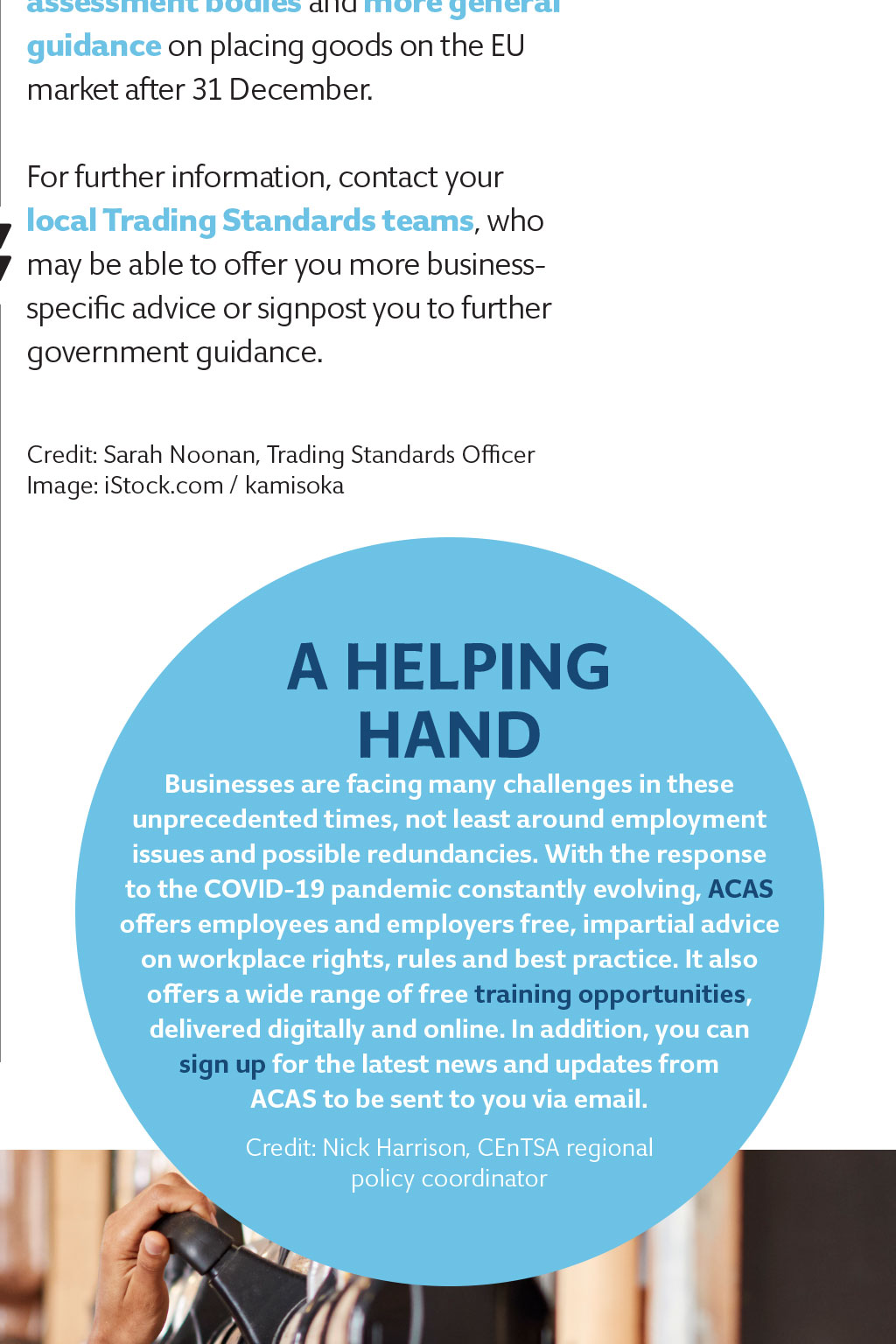

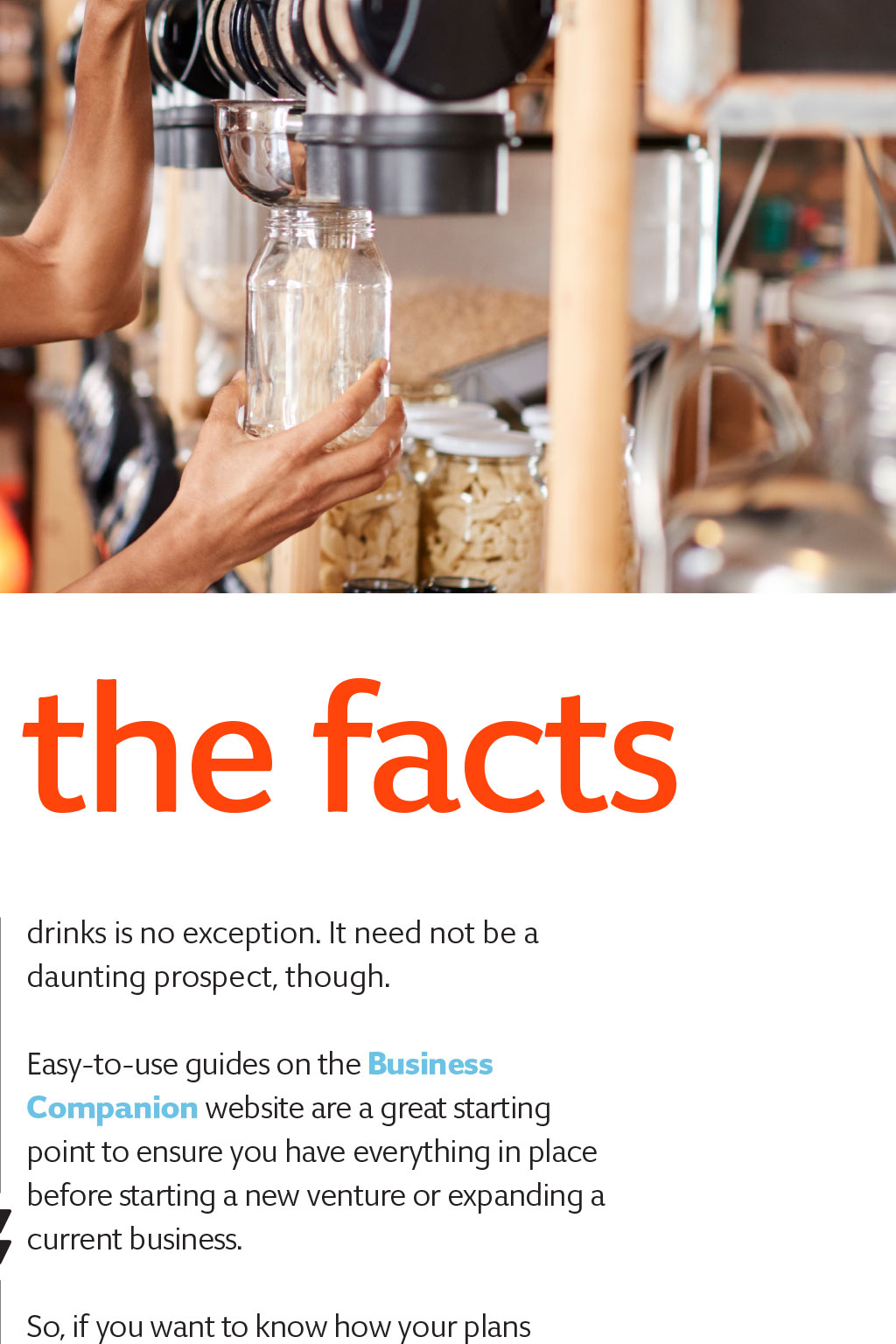
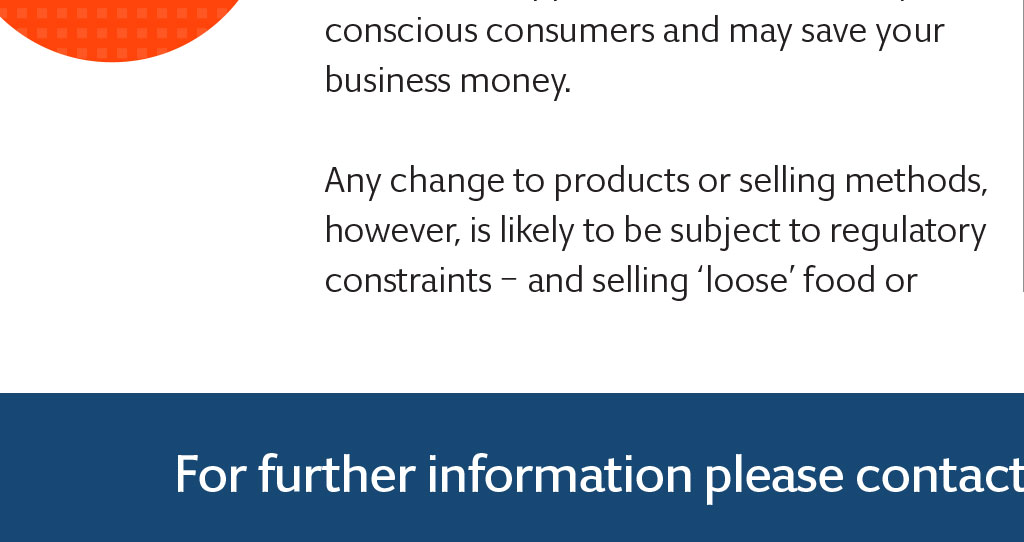
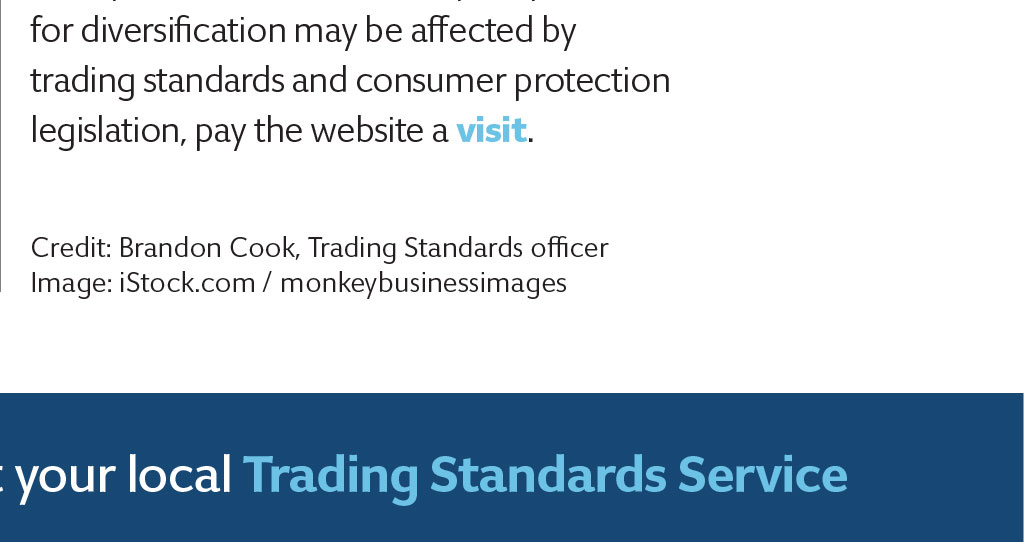









ROUND-UP New year, new rules The Brexit transition period closes at the end of December and all businesses particularly manufacturers and importers must be prepared to operate in both the UK and EU markets from 1 January 2021. ROUND-UP While this may seem daunting, the government has produced guidance on specific changes, plus more general guidance on the anticipated imports and export rules. As TSBN went to press, the government was still working on providing a legal framework and route to compliance for the product safety and metrology markets. It has, however, created a Transition Tool Checker, which includes actions you can take now to prepare for the end of the transition period. The checker also allows you to sign up to receive a regular Business Readiness Transition Bulletin, with information on major announcements and recently published guidance. For manufacturers or importers of goods that carry a CE mark, a key change to products sold in the UK will be the introduction of a new UK safety mark, namely the UKCA. All businesses should be mindful of the changes regarding conformity assessment bodies and more general guidance on placing goods on the EU market after 31 December. For further information, contact your local Trading Standards teams, who may be able to oer you more businessspecific advice or signpost you to further government guidance. Credit: Sarah Noonan, Trading Standards Ocer Image: iStock.com / kamisoka A HELPING HAND Businesses are facing many challenges in these unprecedented times, not least around employment issues and possible redundancies. With the response to the COVID-19 pandemic constantly evolving, ACAS oers employees and employers free, impartial advice on workplace rights, rules and best practice. It also oers a wide range of free training opportunities, delivered digitally and online. In addition, you can sign up for the latest news and updates from ACAS to be sent to you via email. Credit: Nick Harrison, CEnTSA regional policy coordinator Fill up on the facts At this dicult time, small businesses might be thinking of diversifying to attract customers and benefit from new markets. ROUND-UP For example, there is growing demand for firms to reduce single-use plastic packaging, so food and drinks retailers may be considering using refill containers, or customers own containers. This selling method will appeal to environmentally conscious consumers and may save your business money. Any change to products or selling methods, however, is likely to be subject to regulatory constraints and selling loose food or drinks is no exception. It need not be a daunting prospect, though. Easy-to-use guides on the Business Companion website are a great starting point to ensure you have everything in place before starting a new venture or expanding a current business. So, if you want to know how your plans for diversification may be aected by trading standards and consumer protection legislation, pay the website a visit. Credit: Brandon Cook, Trading Standards ocer Image: iStock.com / monkeybusinessimages For further information please contact your local Trading Standards Service